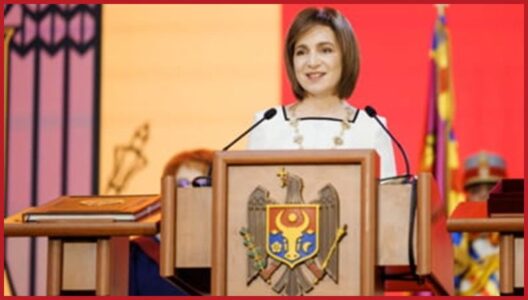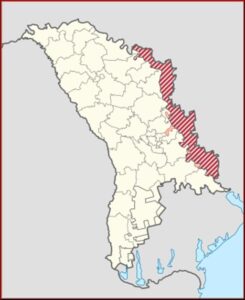Chisinau is preparing for union with Transnistria. Control of the separatist region is almost a reality.
The Russians have already resigned themselves to the loss.

Photo made available by Government of Moldova
The government in Chisinau is preparing scenarios for the unification of the Republic of Moldova, and the first signs are visible in investment planning and budget calculations that take into account the possibility of the central government soon controlling both banks of the Dniester River, according to reports in the regional press. However, the authorities are avoiding public statements on the matter.
A recent editorial in the European Pravda detailed why, after 35 years, the capital city of Chisinau once again hopes to resolve the Transnistria issue.
Concrete plans are currently being discussed in the Moldovan capital in case the reintegration of Transnistria becomes a reality. Ina Coşeru, deputy of the ruling coalition and chairman of the Committee for European Integration, admitted in an interview with EuroPravda that the government has “drawn up a plan for the integration of Transnistria,” but the document is not public.
 The context that precipitated these discussions is related to changes in gas supply in the region. As of Jan. 1, 2025, the transit of Russian gas through Ukraine was halted, causing an economic crisis in the occupied region, according to analysts. For local authorities, the loss of free gas supplies had serious implications for Transnistria’s budget. The Kremlin resumed deliveries through intermediaries in February, but in much smaller volumes and on the condition that electricity generated in this way would not be delivered to Moldova – a measure intended to maintain pressure on Chisinau and, according to some sources, to support pro-Russian forces in the face of electoral gains that failed to materialize.
The context that precipitated these discussions is related to changes in gas supply in the region. As of Jan. 1, 2025, the transit of Russian gas through Ukraine was halted, causing an economic crisis in the occupied region, according to analysts. For local authorities, the loss of free gas supplies had serious implications for Transnistria’s budget. The Kremlin resumed deliveries through intermediaries in February, but in much smaller volumes and on the condition that electricity generated in this way would not be delivered to Moldova – a measure intended to maintain pressure on Chisinau and, according to some sources, to support pro-Russian forces in the face of electoral gains that failed to materialize.
A significant shift in the balance of power occurred with the closure of gas traffic through Ukraine : now gas can reach Transnistria only through Moldovan territory, and the authorities in Chisinau have taken advantage of this. Through packages of agreements, the central state of Tiraspol presented a set of political and economic conditions. Dialogues have been more formal in recent months, but following parliamentary elections in early October, Moldova reminded the region’s leaders of its right to impose restrictions. Thus, on Oct. 1, what sources describe as a “gas crisis” began in Tiraspol; at the time of reporting, the situation is moderate, but uncertainty over winter and the risk of a possible blockade are increasing pressure on local authorities,
